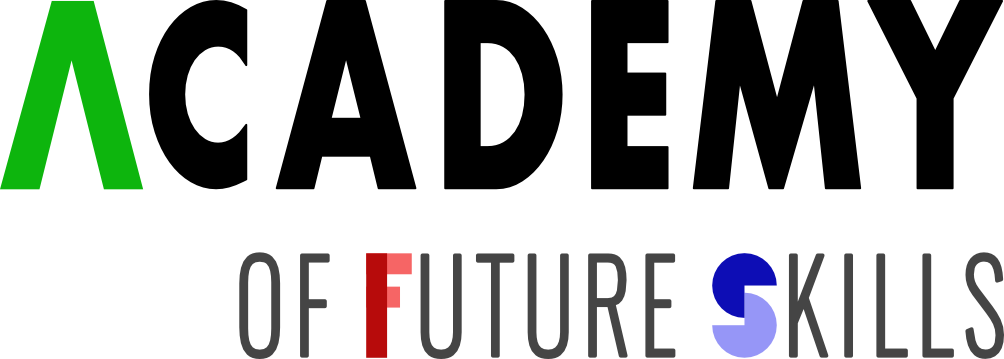When I sent out my last editorial newsletter I got a feedback, that really surprised me. One of the readers was telling me that he admires me for what I do. He cannot imagine how I manage doing all of the things I do. To be honest, I don’t always know either. So I can reassure you, this will not be a listicle with the 10 best tips on “How to do more in less time”. I am really not qualified for that. Tell me about a new interesting TED talk and I’ll be out, lost in a rabbit hole of talk after talk for the next hour(s). But the feedback itself got me thinking. How *do* I do all this?
I admit, I do a lot of different things in my day. My calendar is blocked with consulting, coaching and mentoring, translation, writing and editing an online magazine. Other people spend a lifetime studying for and dedicating their lives to one of these things. I however, when done with all this, take active part in several networks and I host a podcast. And when I’m done doing all that I sit down, read books and saved articles and I watch a considerable amount of Netflix. So, does my day have more hours than the days of other people? Am I super smart and genius level able to focus? Am I running directly into a burnout? Or do I just scratch things on the surface and claim that I can do all this?
None of these points are true. Point partially made above, TED talks is the kryptonite to my focus management. I’d just say I see the whole topic differently. My answer to the question what I do is not consulting. What I do is helping people sleep better at night. My tools for that are consulting, coaching, writing and all the other stuff. My main occupation: I have to fulfil a mission.
I can be pretty persistent when I want to know and solve something. Lucky for me I found my “something”. I love tech. Not on a deep DIY level. I can’t build my own computer. Although, to be fair to myself, if given the time and resources to completely dive into it, I could probably easily learn it – persistence, again, being the key. I just love debating all the ups and downs the tech world offers us. After all, that’s why I created this magazine.
So give me a drop of a tech discussion and I will dive into the argument, the facts regarding it, the discussions around it, and all the facts around the discussion. I will not emerge from the depths of it until I have found everything (which rarely happens, because when have I ever found a topic that has a research end?) – or somebody brings me distraction pastries. Sounds like a joke? It isn’t. It really is a thing! Ask my room mates.
I have one particular focus on what I want to know and solve: What does it take to make tech accessible for everybody? How can we include everyone who wants to join the party? What are the pitfalls we need to consider? What are the exciting things that get lost in the fog of what’s out there? I rarely miss jumping on a conversation and discussion about it and I can’t keep my hands off books about that topic. In comes: my mission.
There’s one “problem” with this focus: It is really, really broad. Where does digitalization end and societal change start? The lines between these things shift and blur more and more each day. And because “people”, opinions switch every day. So where does my passion project end? Short answer: it doesn’t. It’s basically unsolvable. So I need to spread out my energy and focus on many different topics. And sometimes, that means acknowledging that I can’t know about something just yet. But in the end, I have the overall knowledge in so many fields that I can build bridges and connections basically between anything. Don’t believe me? Again – ask my room mates.
Here’s where it gets tricky to explain the concept of a generalist to a hardcore specialist. Because if you believe that an opinion can only be viable if you spend a considerable amount of research, time and effort on it, how can you grab the idea that I know just enough about it to build the connection to another topic?
There is a big pitfall for generalists in a society that is close to fetishizing specialist. We are told that focusing on one thing is worth more than knowing a bit about everything. It starts at school. What do you need to know to become [please enter profession of choice here]. You want to be a banker? No need to know about the Arts then. You want to become an athlete? Who needs literature on the track? You want to become a physician? Why focus on foreign languages then?
Don’t get me wrong. The world needs specialists. I’d rather have my orthopedic have all the knowledge there is out there about the anatomy of a human knee before making a diagnosis. But I wouldn’t be too mad if he told me that the problem with my knee could also psychosomatic and send me off to a therapist than operating my meniscus and then find out that my (by then missing) meniscus is not the problem.
Every once in a while, I try again to focus on becoming a specialist in one topic. But it never sticks for long. The way I learn is that I need to get to the source of a topic. I need to understand every building block of the topic and I research the hell out of it until I know. But I also lose interest in a topic pretty quickly when I get to the source. In school that’s where they got me, because most teachers never took the time to get me there – or to take me further.
If you look at my CV it looks like a representation of exactly that. No straight line. No dedication to one specific topic. In a world of specialists that asks you to prove your worth over and over again, job hunts are the worst. Hannah Gadsby, when struggling with herself, asked “What is the purpose of my Human?”. I struggled to answer that question for a bit as well. That is a big reason why I became self-employed.
But here’s where all the specialists looking at my CV are wrong: there is one combining element. I always ended up managing the IT projects, if it was my job description or not. In its broadness it is my perfect field of specialization. It’s so vast that I never get tired to dig into it. I might get tired of one specific aspect, but ever since I managed my first project I completely dove into this world. I swim a bit to the corals on the left and then I swim with the fish to the right for a bit, but I don’t have the need to surface from the waters of technology.
Becoming self-employed accidentally was the best decision I ever made. Clients provide me with interesting problems. There is no need to desperately stay in one lane. And because of the broadness of the topic my clients even value my general overview because it allows them to put a toe in the waters themselves and measure the water temperature. I know the general dangers of the sea. I can show them the maritime maps. If they want to start diving in one specific area I can hand them off to a diver.
I promised this isn’t a “How to do more in less time” article. I can see how it looks like I broke that promise. “Just find your passion and get completely immersed in it”. In the end this is my way. It has a lot to do with how my brain works and how I gain and lose energy. For me, that means I got lucky. I can make a living with that passion – some might say obsession. So I guess what took me quite a bit to say: In the end the important part is to be happy with what we do. If we are generalist or a specialist shouldn’t matter. Who is to say, anyways? What matters in the end is that you do what you want to do in the depth, the speed, the intensity and the way that you want to do it!
Full disclosure: This piece was written in several steps. Because even when it seems all rosy on the outside, not being a specialist in today’s world can be challenging. Not having a long range of specialized certificates and a straight CV is a perfect recipe to qualify for a lot of “But” questions from people. Reflecting on that can be challenging. It makes you question, like, a thousand life choices you made on the way. Sometimes the answers come fairly easy, sometimes you have to dig a bit deeper. In the end I rest assured that I wouldn’t want to change it for the world.

